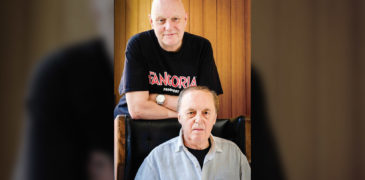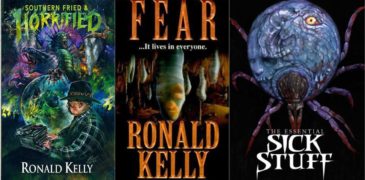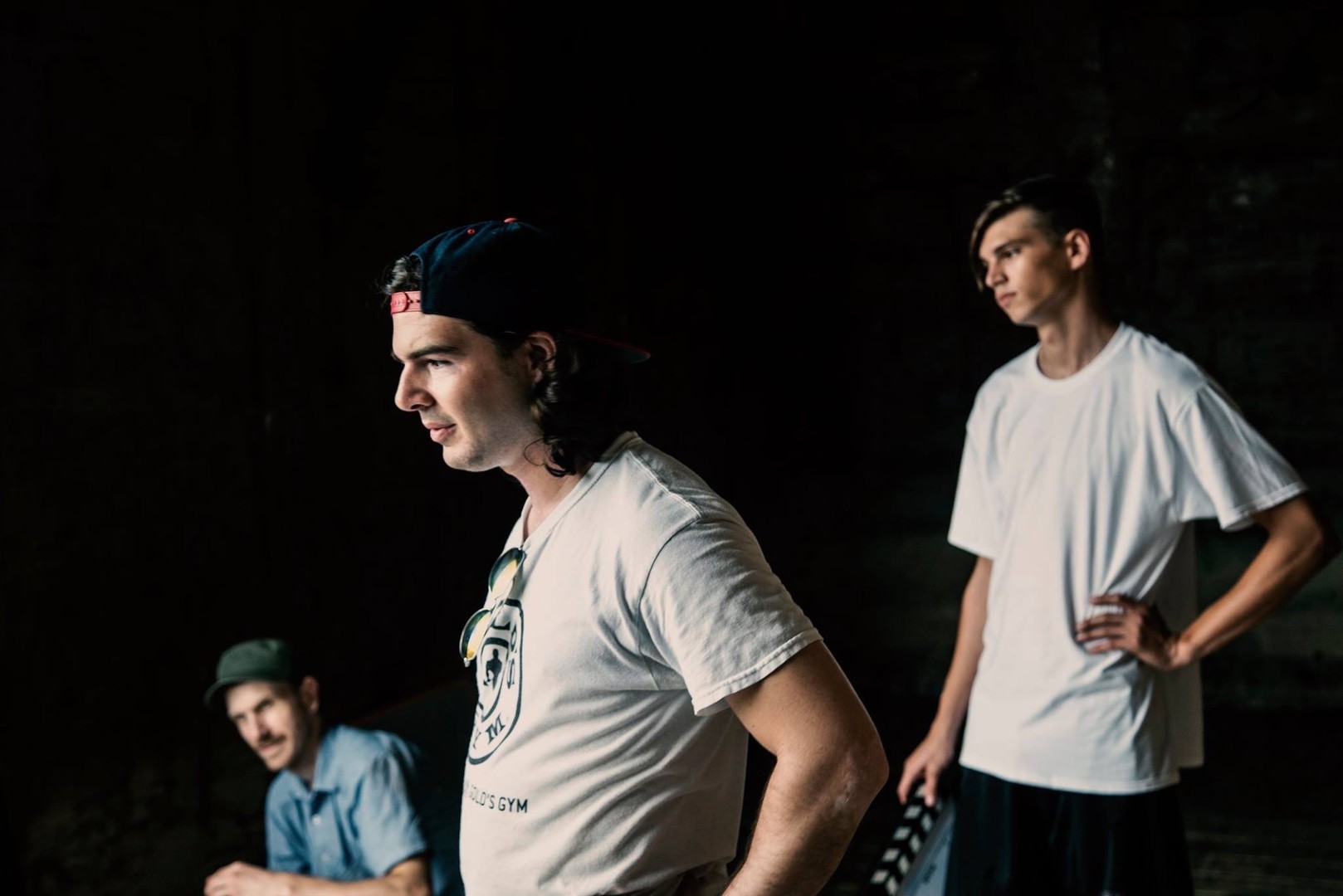
Thomas Burke is an award-winning filmmaker and editor based out of Austin, Texas. He has spent over the last decade freelancing in various production roles including film directing, acting, producing and editing.
Early in his career, Thomas received a B.B.A. in Digital Media Management from St. Edward’s University in 2013. Upon graduating, he joined an apprenticeship with the Austin Film Festival – where he worked as an assistant editor for ‘ON STORY’ – AFF’s two-time Lone Star Emmy award-winning program. During that time Thomas started to produce and direct his own shorts films, including his award-winning western/drama ‘THE MAKING OF THE LOST SON’ (2015).
After working on various productions both in and outside the state of Texas, Thomas went on to produce his first narrative feature-film, ‘AFTER THE NIGHT WITH VALERIE’. He has since contributed work on dozens of short and feature length narrative films. Today, Thomas is the editor at POV Horror (On-Demand) as well as the content manager on Found Footage Critic– the world’s largest database for found footage films, reviews, archives and more. In his spare time, Thomas enjoys skateboarding as well as translating international cinema.
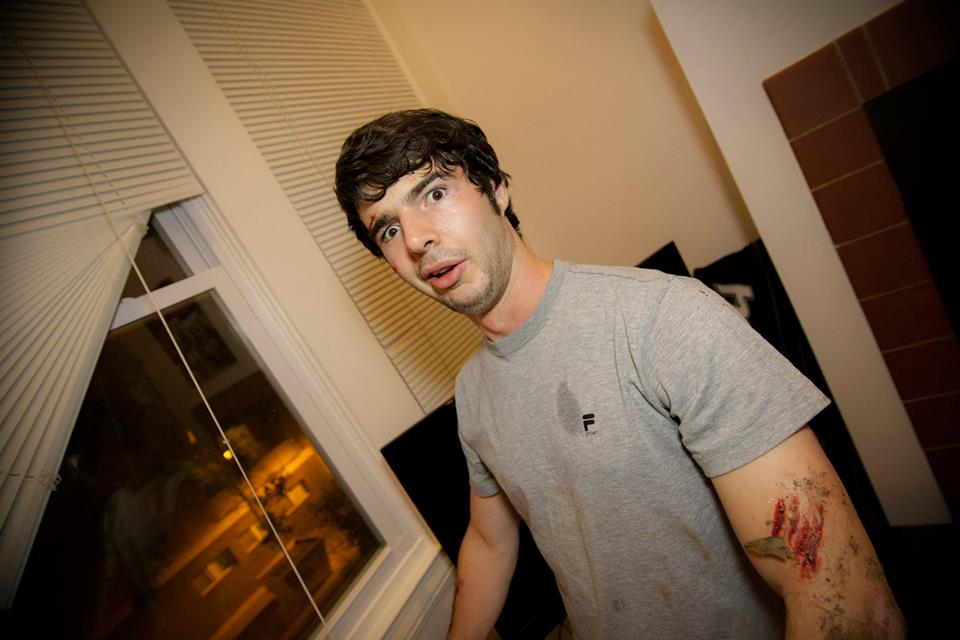
Can you please tell us how you first got interested in film, and what were some of the movies/media that influenced you early on?
I first became interested around the year 2000 when my parents came home with a brand new DVD player along with the Helen Hunt movie, Twister… We also had this surround sound system installed which would probably be considered laughable today, but at the time it totally rocked my world. Ever since then, I’ve pretty much become obsessed with hard copy media collecting.
You work primarily in the Found Footage genre as both a filmmaker and editor, what attracted you to the format?
I actually work equally in both the traditional format as well as found footage. Although I’m particularly fond of found footage because I think it offers another one of those chances to engage the viewer more intimately… sort of like how Twister did for me.
What I think sold me on the format though was noticing just how theaters were beginning to accept ff pictures in the early-mid 2000s, such as ‘Area 51’, Chronicle as well as As Above So Below – whereas earlier in the years prior, the word ‘found footage’ seemed to be something that was frowned upon… Now I’m beginning to think there’s a stronger acceptance and interest in the genre.
The Found Footage genre seems very heavily driven by the community of both fans and filmmakers, more so than any other genre, what part do you think this plays in the popularity of the format?
I learned this term in film school called ‘following the action’. Basically, it’s a style/method used to maintain a close-up intimacy of your character subjects- in order to generate a catharsis.
Found Footage is perfect for this because the golden rule of found footage filmmaking is that the camera has to always be built into the narrative practically. So this opens up a new sort of pathway to stories that haven’t been told yet. And I think that gets both the filmmakers and fans really excited.
Look at Hardcore Henry for instance and how that was one of the pioneers for the first person POV style narrative, or how the way The Collingswood Story acted as that for Screenlife. Now we’re beginning to see 360 virtual being integrated via found footage, as well as animation or 100% CGI, so who only knows how far found footage will expand let’s say ten years into the future.
As someone who works heavily in the editing process do you have any advice for someone who is interested in doing it as a career?
When I was doing some apprentice editing for networks, a lead once told me that if I really wanted to be an editor, I should consider quitting filmmaking. And that didn’t sit well with me, because I thought he was trying to say there’s just too much technical know-how to possess, that learning how to be an editor, while also learning how to be a filmmaker or actor was just merely impossible.
Even though I disagree with that assessment, the feedback has always stuck with me… because truly there is a lot to learn. But generally, here is my advice: really look into each software to see which one feels the most comfortable to you, then set a goal to allot ten thousand hours for ‘x’ amount of time. Then no matter how little or many things you’ve cut in that span, you can without a doubt consider yourself an expert.
Also, don’t be afraid to take advantage of the online support team services that many of these programs offer, because learning how to troubleshoot something, or learning why something just doesn’t work may help you next time in navigating the program more easily.

Found Footage Critic has become an essential tool for tracking the massive amount of films released in the format, can you please tell us how you got involved with the page and your role there?
I’m a huge fan of FFC! Last year, I reached out and offered to help, as I was watching a ton of found footage movies at that time, and was hoping I could attribute all that watch time towards something constructively.
At first, I contributed to various online movie databases, simply updating the credits to virtually every found footage movie I’ve seen. Then once I gathered that FFC was also doing a similar thing, but cataloging on more of a creative level, I instantly became excited with the idea that maybe I could expand this strange hobby beyond just copying and pasting people’s names, haha.
I’ll say this though, watching the credits over and over again has, strangely enough, taught me a lot about filmmaking.
I think you may have watched more found footage movies than any other living person. Can you recommend five obscure gems that it would be worthwhile for people to track down?
Absolutely! Bong Joon-ho (Parasite) created a short film in 2004 called ‘INFLUENZA‘ that is captured entirely via security cameras, and offers a wildly authentic (and intense) journey!
Operation Avalanche — This was done by the same filmmaker who made the found footage film called ‘The Dirties’ — O.A. is about a group of real filmmakers who actually break into NASA in order to secretly film this movie called ‘Operation Avalanche’ — which is about a group of CIA Agents who secretly infiltrate NASA in order to film their movie about the uncovering of an alleged fake moon landing. It’s basically a meta retro avant-garde counterfactual history thriller, haha! That was a mouthful..
The Alien Report (2022) This one is available on Vimeo On-Demand, and the reason I like it so much is that it offers an inside view of the alien encounters nearly the whole time. Typically, filmmakers will choose to deliver their ‘money shots’ in a short and dispersed kind of way… this movie just gives you eye candy from start to finish.
SkyDiver (2010) — This is the same director who just recently made ‘Spree’, and this movie happens to be one of the very early screenlife films ever made… yet while it doesn’t offer any sort of eye candy, it’s still able to deliver the narrative fantastically. This is a good example of storytelling doing most of the work.
Bonus: Check out a found-footage series on Vimeo called ‘The Forbidden Files‘ (1989). It’s a collection of 12 ff segments that each capture a different story from around the world.
Follow up, Do you have an all-time favorite or one that you find you revisit often?
As a fan of horror, what scares you the most?
I actually keep an entire list of this… strange behavior is what typically gets me spooked the most. That or whenever a subject charges (or plummets) the foreground.
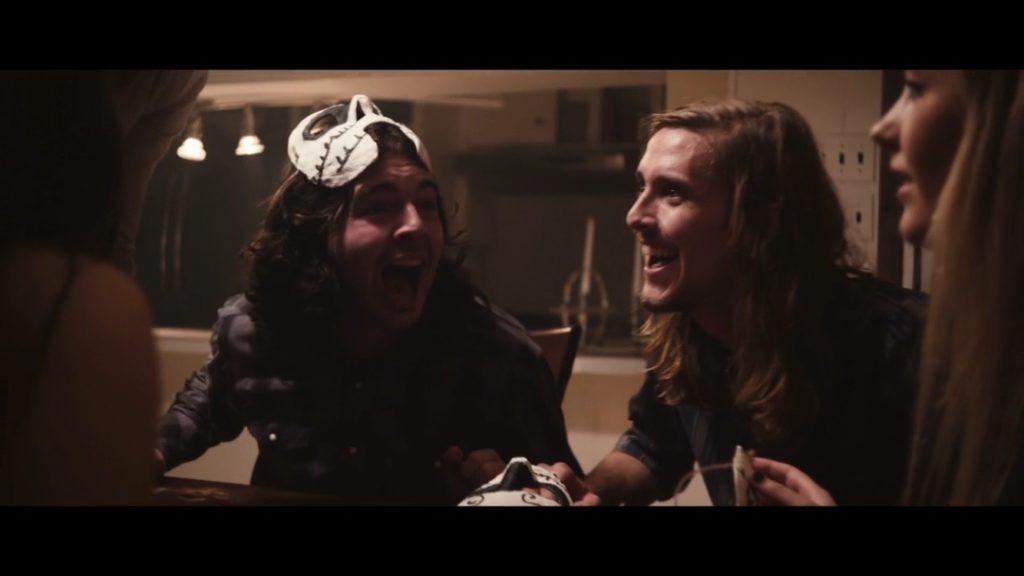
What do you hope the future holds? Any dream projects? and what are you working on right now?
I think there is a resurgence happening with found footage. I’ve spoken to a lot of directors in the industry about this who has also delved into this style of filmmaking, and I think many of them believe it too.
Found footage was once considered a sub-genre and has now proven itself to be more of a surface genre because of all these breakaway found footage perspectives we’re beginning to see, such as ‘First Person [POV]’, ‘Screenlife’, ‘Faux Doc/Mockumentary’, ‘CCTV’, ‘Analog Horror’, ‘Hybrid’ and so on.
As far as what the future holds, I’m very excited to be announcing a found footage feature I’ll be co-directing (with some of my favorites in the genre), which is to be released as an anthology/sequel of another found footage movie.
What is the best way for people to keep up to date on what you are working on?
I’ve recently teamed up with POV Horror and No Sleep Films, which both delve primarily into found footage filmmaking, so be on the lookout for some of their upcoming releases.
You can also tune into my weekly found footage recommendations via The Overlook Hour podcast, as well as a glimpse into some of the more obscure found footage entries I’m creating on Letterboxd!
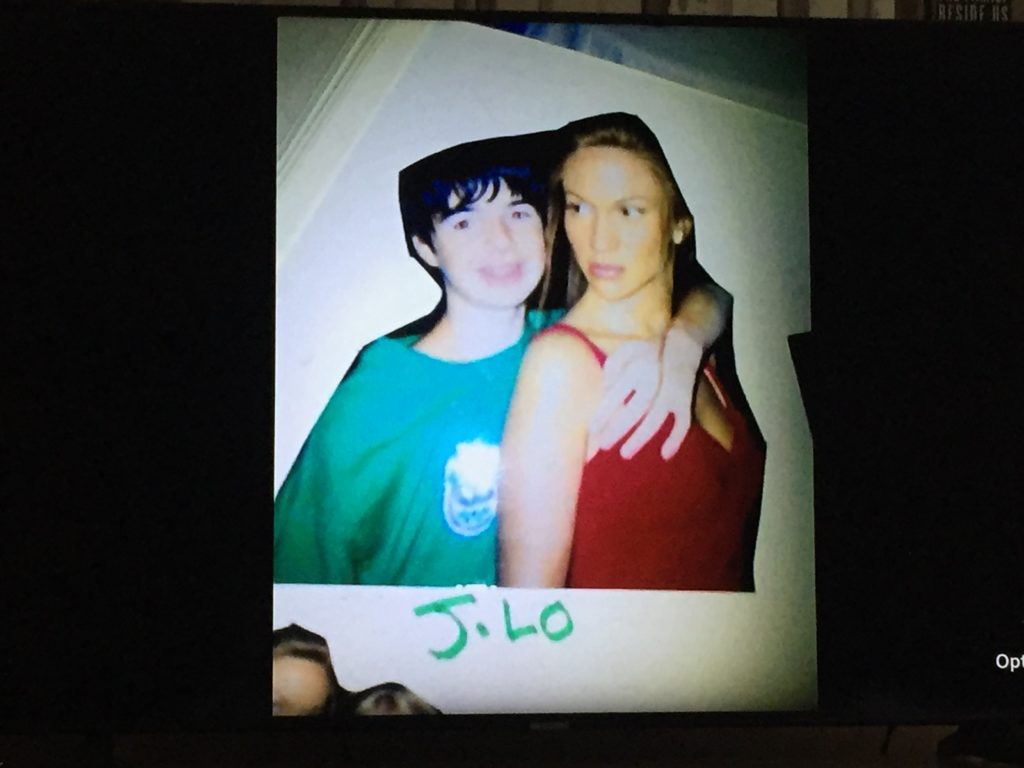
More Interviews
Back in the 1970s, the names of Reiko Ike and Miki Sugimoto were on everyone’s lips. Hailed as the “queens of porno”, they not only became exploitation cinema royalty but… With the launch of the Jan 20 launch of FRIGHTFEST SATURDAY SCARES WITH ALAN JONES on Fast TV channel NYX, Alan recounts his rise to journalistic prominence – from stealing… Ronald Kelly hails from small town Tennessee, where he was born on November 20th, 1959. Having grown up on a steady diet of EC Comics and the old Universal Monster… Ahead of NYX UK’s season of Simon Rumley films in December, the award-winning director talks candidly about therapy in filmmaking, his past fear of contracting AIDS/HIV, and being kicked of…An Interview with The Vamps – Pinky Violence Royalty Reiko Ike and Miki Sugimoto Talk Sex
An Interview with Alan Jones – Famed Film Journalist
Southern-Fried Fear – An Interview with Ronald Kelly
An Interview with Simon Rumley

